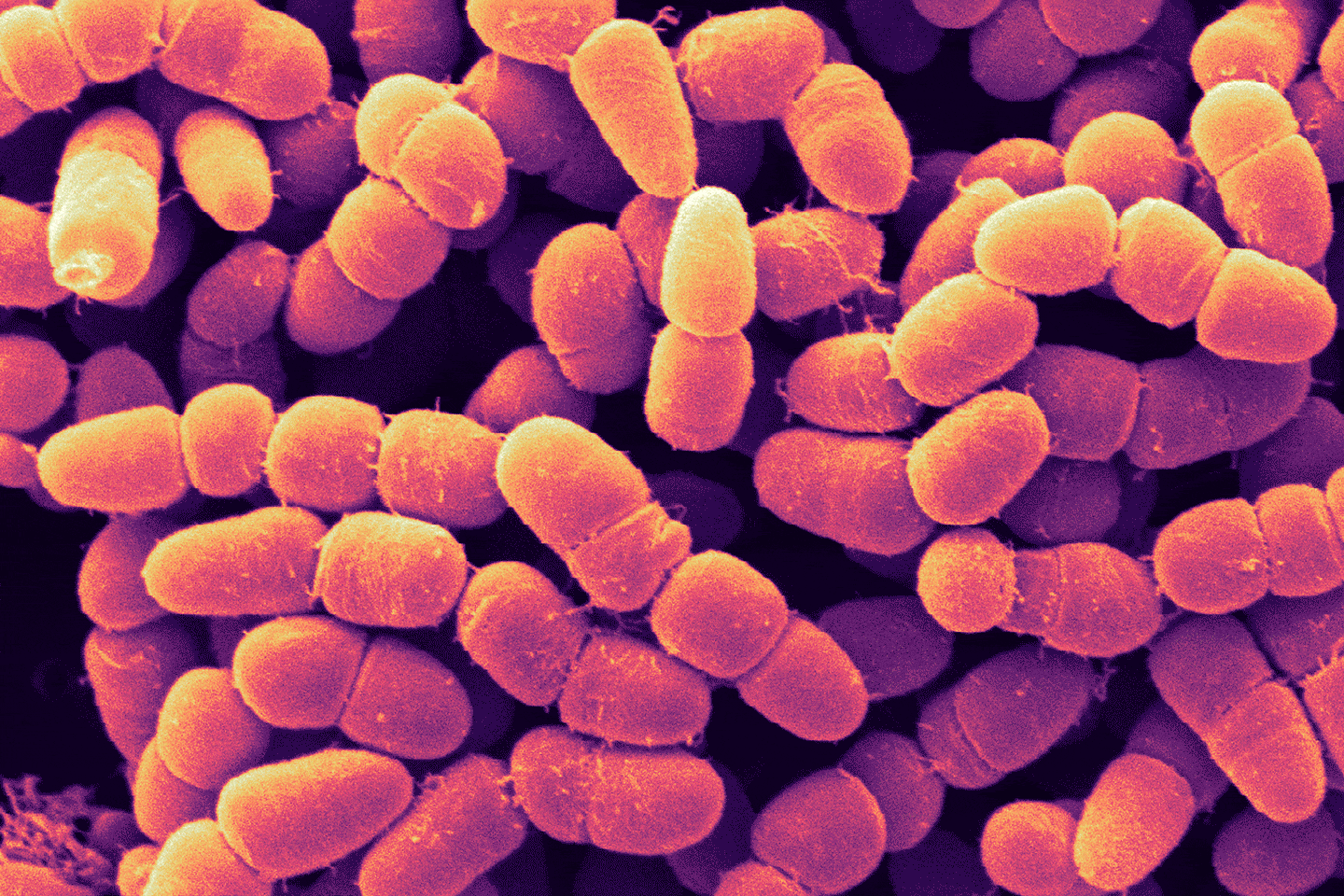Genes play a refreshingly limited role in Carl Zimmer’s new book about heredity.
“The subject of freedom and its enemies is enormous,” Aldous Huxley wrote in an essay distilling his novel Brave New World. The dystopian story is regularly evoked as a warning about human engineering, but Huxley’s own words suggest he had something else in mind, something bigger than genetic manipulation. Now, with his sweeping new book on heredity, She Has Her Mother’s Laugh, it feels as though Carl Zimmer has picked up on Huxley’s idea: that the letters of our genes matter much less than how we choose to influence their expression.
Set 500 years in the future, Brave New World begins, memorably, in a 34-story building labeled the “Hatchery and Conditioning Centre,” controlled by a global empire called World State. The hatchery is a factory for synthesizing human beings by the thousand. It features a conveyor belt of blood-filled test tubes and artificial wombs in which every person is conceived and gestated. Embryos pre-ordained to be of a higher caste receive superior prenatal treatment, while lower castes are poisoned during embryonic development.
World State’s aim is perfect societal stability: no unemployment, no hunger, no war, no disease, and no pain. There is also no art, no scientific inquiry, no exploration, no wild nature, and no love. But the state’s biological manipulation isn’t really what makes that possible; instead it’s a hyper-consumer culture that suppresses the human spirit. It’s a world of reductionism, where individual humans are cogs and human culture is a series of meticulously manufactured experiences.
I found my imagination wandering back to this aspect of Brave New World soon after cracking open She Has Her Mother’s Laugh. Zimmer digs into his own family’s genetic legacies, scans the history of genetic research, sheds light on recent scientific advances, and probes the frontiers of humanity’s understanding of itself. Where Huxley sees genetic heredity as one tool for degrading a free society, Zimmer sees the fraying of our collective values as a threat to our children’s inheritance.
Rarely is heredity a neatly packaged, deterministic bequest, as in the case of a single gene mutation leading to a disease like PKU, which causes cognitive disabilities beginning in infancy. A trait like intelligence is usually fuzzy. It can be limited by something like PKU, or passed on from genius parents, but increases in intelligence over time are more closely correlated with improvements in childhood nutrition and reductions in childhood labor. Much of an individual’s intelligence is determined by wealth, education, health care, and environment.

Zimmer thus insists there’s a moral imperative to approach heredity as a field greater than genetics alone. Take wealth, for example. Unlike a gene whose persistence in a bloodline is diluted over time, inter-generational wealth transfer tends to compound down a family tree through virtuous feedback loops. Global warming is a compounding inheritance, too.
In Brave New World, World State’s most nefarious tools are not genetic at all: physiological manipulation with an opioid-like drug called soma; brainwashing children with propaganda as they sleep; and economic hyper-stimulation through pathological consumerism. Huxley, writing later, would note that he saw these “impersonal forces” as the darkest threats to freedom.
Zimmer is on to something similar when he warns against an impersonal “genetic essentialism,” a term he uses for the idea that genetic research will one day explain the heritability of all human traits, conditions, and diseases. That idea is misguided, he shows, because the cumulative culture of humanity has a profound — if not dominant — impact on heredity.
Genetic essentialism is disempowering and can lead to moral abdication. Zimmer describes a study in which participants were divided into three groups and given articles to read. The first group read an article linking obesity to genetics, the second group read an article tying obesity to social networks, and the third group read an article about food that did not mention obesity. Then members of each group were offered cookies. The first group — informed that obesity was tied to genetics — ate the most cookies. This presumably occurred because when we assume genes shape our lives, we are less likely to take responsibility for our actions.
Many opponents of biotechnological innovation specifically reference Brave New World as a reason to fear biotechnology gone awry. This, however, is an argument based in genetic determinism, lazily placing the genetic component on too high a pedestal. Today we use biotechnology to sidestep baby-killing diseases like rubella (with vaccines) or spinal muscular atrophy (with genetic screening and assisted reproduction). Sure, the tools of biotechnology may be used for evil, but many dystopian visions of the future grossly under-emphasize the nongenetic aspects of heredity that could propel us there.
World State perpetuates itself not via conveyor belts of embryos, but by the impersonal forces of gratuitous pleasure, consumerism, complacency, and a politics of distraction. Similarly, Zimmer argues that genes, microorganisms, social structures, and global weather patterns will all be shaped by the values that we apply to the environment inherited by our children. That is, evolution is not just something that happens. Far from it: evolution is an ongoing process guided by an accumulated culture. We can shirk that responsibility, or we can use our freedom to choose what we pass on.













